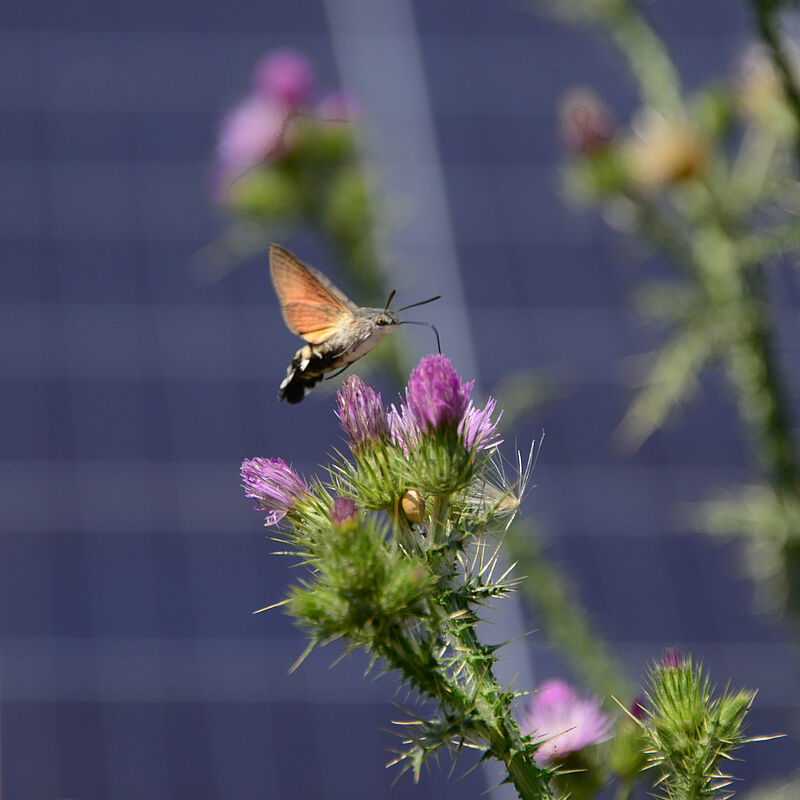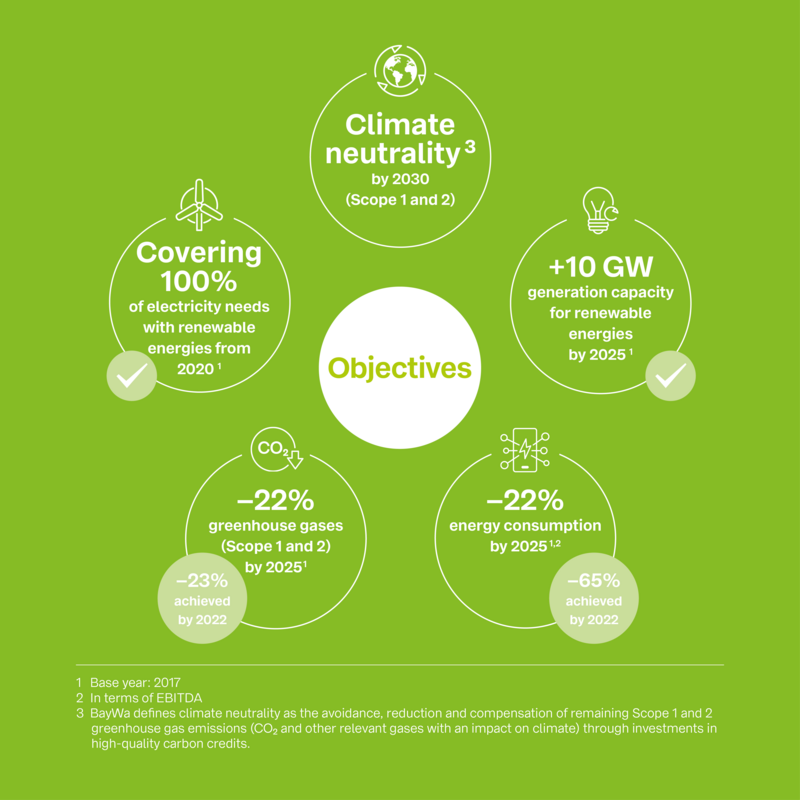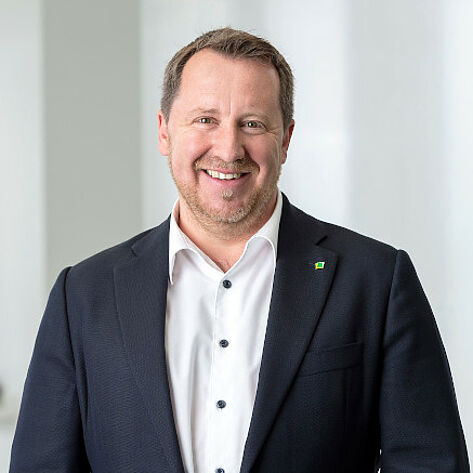Our Commitment
At BayWa r.e. sustainability is at the core of everything we do. Since 2018, we have fully offset all emissions resulting from our business operations and travels. This action reflects our dedication to environmental responsibility, ensuring that our impact on the planet remains minimal while upholding our mission to accelerate the growth of renewable energy.
In 2020, the launch of our Sustainability Framework 2025, guided by the United Nations Sustainable Development Goals, marked a transformative leap, propelling us ‘to go beyond carbon’. We embraced a holistic sustainability approach, addressing social, economic, and environmental challenges, with the aim of creating lasting positive impact that goes far beyond decarbonization.
Our Sustainability Framework 2025 empowers employees to drive sustainability initiatives. We believe in the power of collective action, encouraging our team to champion endeavors that bring positive change to our communities and our planet.
In 2024, we have elevated our responsibility by shifting from a carbon compensation approach to a climate contribution approach that aligns with the best practices for climate action. While reducing our corporate carbon footprint, we also aim to actively invest in internal and external actions that enhance our holistic sustainability impact. Together, we're paving the way for a more sustainable and prosperous future.
Statement on Sustainability – Matthias Taft, CEO of BayWa r.e.
Our Sustainability Framework
Our Sustainability Framework 2025 is inspired by the Sustainable Development Goals (SDGs) developed by the United Nations General Assembly.
Out of these UN Goals, we have selected ten priority SDGs that will help us to guide our company’s internal sustainability efforts and in turn contribute to the wider UN Goals.
Beyond Carbon
We recognise that sustainability is a holistic endeavor and we still have a long way to go on the path of true accountability. We aim to go ‘beyond carbon’ and to address a wide range of sustainability aspects for society, the economy and the environment.
Following our SDG selection, we have initiated working groups that are driven by employees from across the globe. Prioritised objectives that directly contribute to our Sustainability Framework are ‘Promote Diversity, Equity and Inclusion’, ‘Foster Sustainability within our Supply Chains’ and ‘Enhance Acceptance of Renewable Energy Projects’. Our working groups are already working towards these objectives.
Another initiative is our Sustainable Lecture Series. This internal event series has been set up to give our employees the possibility to listen to and speak with leading scientists, activists or policy makers on different aspects of sustainability. Our first speaker was Prof. Rex, leader of the MOSAIC Expedition to the Arctic, who shared with us first results from the expedition and his urgent call for immediate action on climate change.
We will continue to build and evolve our approach to sustainability in the coming years. The journey we are on is not one that has an end, rather it is a way of thinking and acting that will continuously evolve and help shape our business.
We welcome your interest to creating change together. If you have questions, feedback or would like to hear more about how we're working towards these goals, please contact us.
BayWa r.e. Sustainability Update 2023
With this Sustainability Update, we want to inform our stakeholders about the progress we made towards the objectives of our Sustainability Framework.
This report also contains a comprehensive selection of ESG key figures as well as several case studies to emphasize on the positive impact of our renewable energy projects.

We are a part of the BayWa Group
... and its sustainability commitment
A group-wide Climate Strategy was implemented by the BayWa Group in 2019, which outlines ambitious commitments and goals.
BayWa’s climate strategy is guided by the Paris Agreement on gobal warming. An important foundation for our work is the Intergovernmental Panel on Climate Change (IPPC) Special Report ‘Global Warming of 1.5°C’ in which immediate action to mitigate climate change, sequester carbon emissions and steer the future of our Earth in a better direction is called for.
As part of its commitment to work towards clear and tangible sustainability goals, the BayWa Group has joined RE100. RE100 is a group of corporations that have publicly committed to using 100% renewable energy in the coming decades.
In its second year of participation, BayWa AG has achieved a B rating in the Carbon Disclosure Project (CDP) and is above both the European and the industry average.
In 2020, BayWa was named one of "50 Sustainability & Climate Leaders" by the United Nations and Bloomberg. The film published for this purpose shows how BayWa, as a traditional conglomerate, is driving the agricultural, energy and building materials sectors forward through sustainable innovations.
BayWa AG's Group-wide climate strategy
Our contribution to BayWa AG’s Climate Strategy
With our expertise in the renewable energy sector at BayWa r.e., we strive for sustainability and contribute to the groupwide company targets of BayWa AG. BayWa r.e. has achieved the BayWa AG group target of generating additional capacities of renewable energy; between 2017 and 2022, we have constructed wind and solar projects and delivered solar panels totaling 12 GW.
We have been supplied with 100% green electricity since 2020 and energy efficiency is embedded in our Sustainability Framework 2025.
The reduction of greenhouse gas emissions is a top priority. Therefore, emission reduction potentials are identified on a regular basis and reduction projects are continuously implemented. From 2018 to 2023, all emissions from our sites, car fleets and business travels have been 100% carbon compensated. In 2024, we deepened our commitment by shifting from a carbon offsetting approach to a climate contribution approach. This proactive move signifies our dedication to internal and external financing for climate action.

Our Footprint
As part of the BayWa Group, we disclose our sustainability related data such as our energy consumption and other CO2 emissions via the annual BayWa AG’s sustainability report since 2015.
The BayWa Sustainability Report is prepared in accordance with the standards of the internationally recognised Global Reporting Initiative (GRI) and is subject to an external independent audit.
To date, we are reporting all direct emissions from our sites, facilities and car pools (Scope 1) and indirect emissions such as electricity, heating and cooling consumption (Scope 2) as well as our travel emissions (Scope 3.6).
Currently, we are expanding our reporting scope to include more Scope 3 categories.
Based on the collected data, we identify areas to actively reduce our carbon footprint and to define concrete measures to increase energy efficiency and consequently reduce emissions.
Measures that are already under implementation include the use of LEDs in our offices and warehouses, the switch to 100% green electricity supply in 2020 and the continuous transition to an electric car fleet.
As a company active on a global level, it is currently not possible to operate completely carbon free. Therefore, all remaining emissions from our sites, our car fleets and the business travel of all employees are offset to further reduce our impact. BayWa r.e. has compensated 100% of its GHG emissions since 2018.
The principle of offsetting is based on the idea that it is not crucial for the climate where CO2 is emitted or avoided. Therefore, emissions caused in one place can be saved in a faraway place where carbon reduction projects are feasible and offer social and environmental benefits for the region.
Starting January 1, 2024, BayWa r.e. adopted a Climate Contribution approach that aligns with the best practices for climate action and the Paris Agreement. This approach will replace our compensation claim effective until end of 2023, stating that we compensated 100% of our operative emissions by certified climate protection projects that have further environmental and social benefits.
More information about the new Climate Contribution approach will be shared soon.


